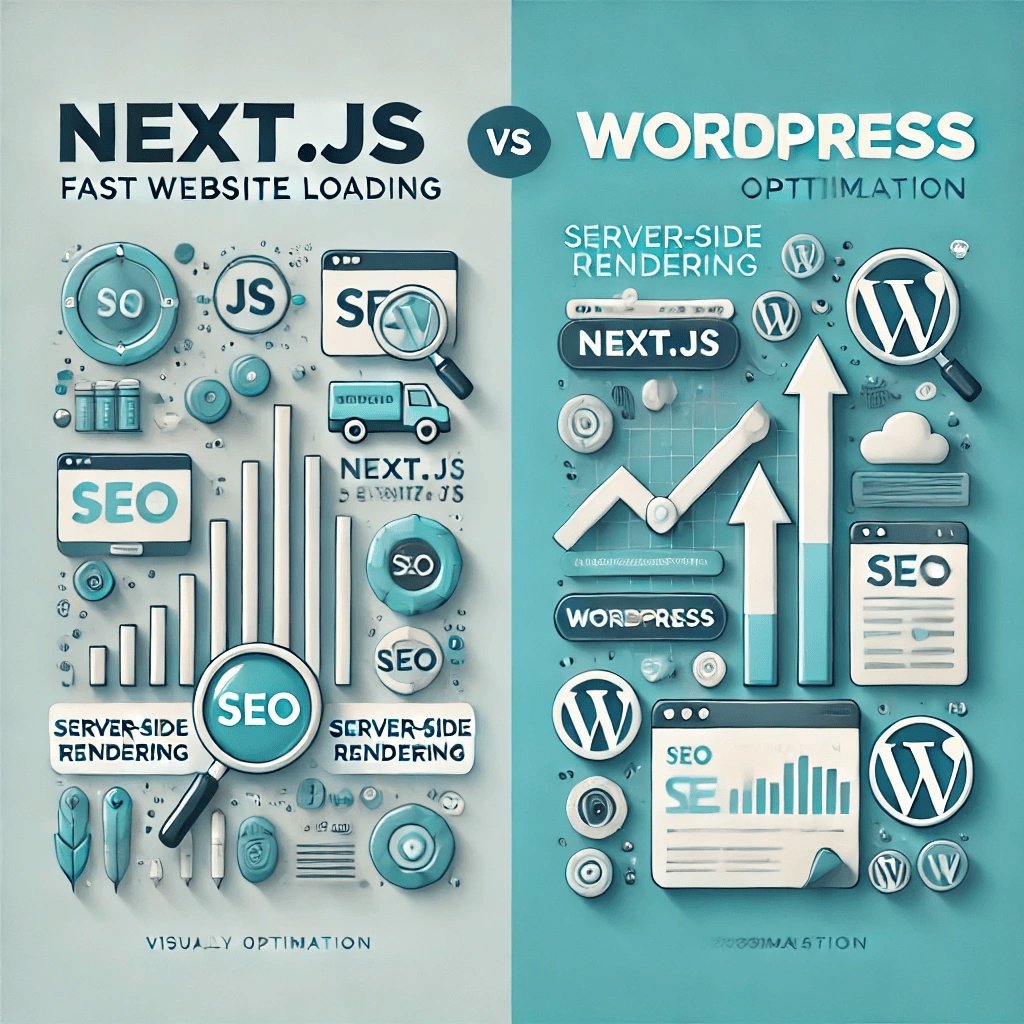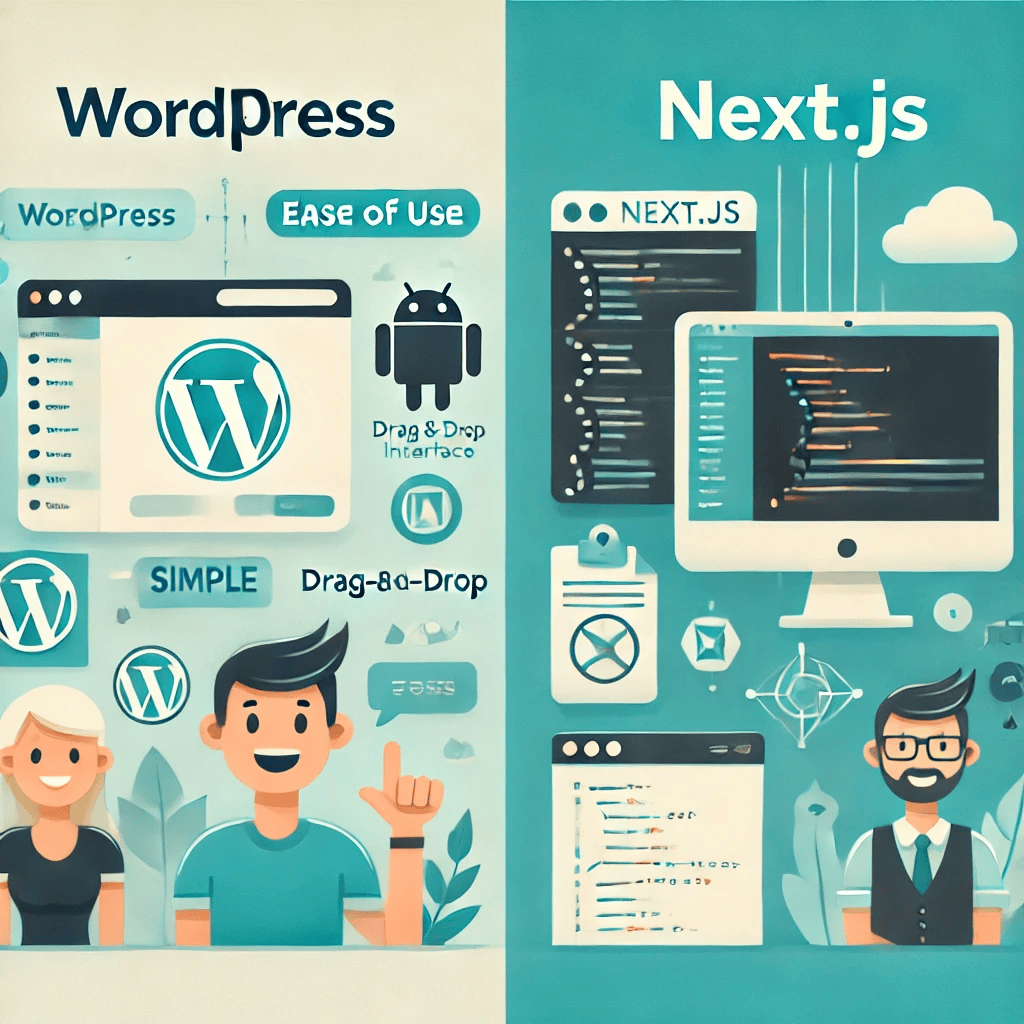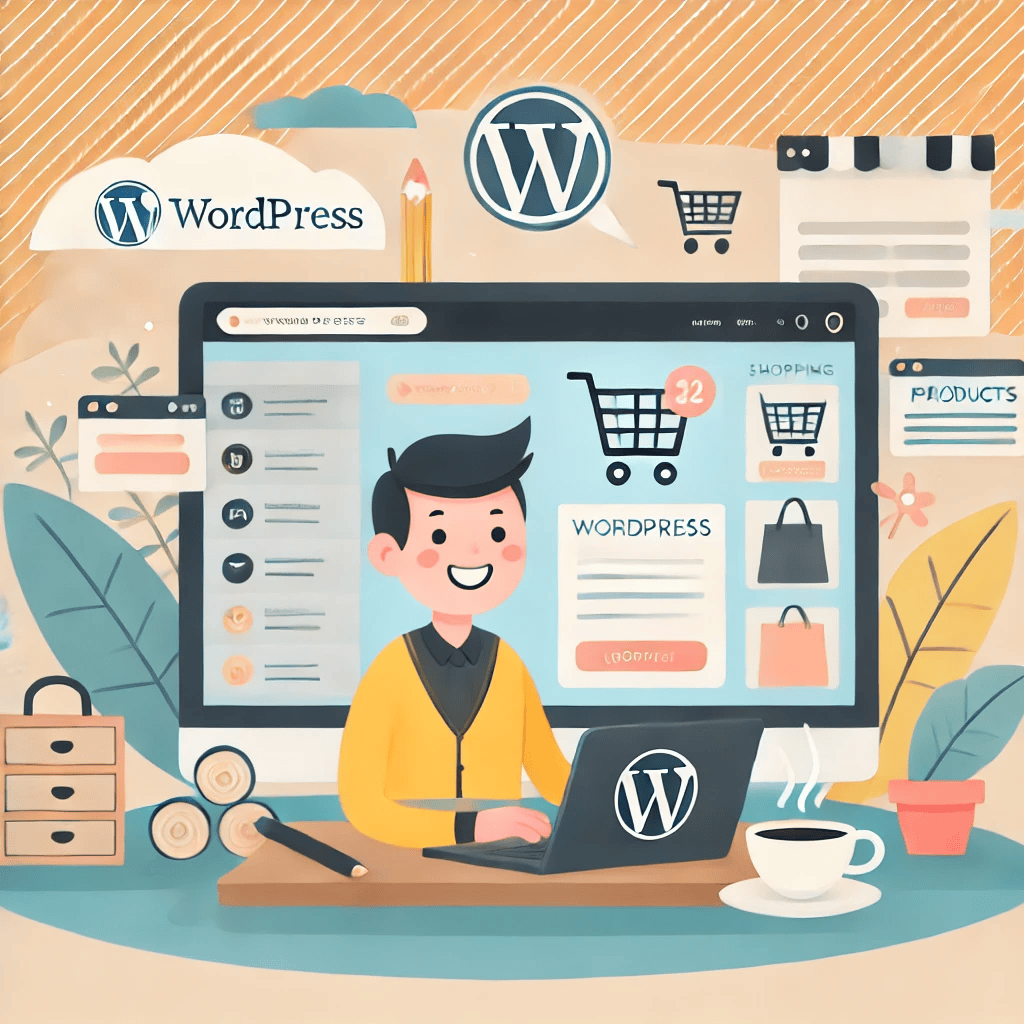- Ksoft Technologies, Kerala , India, 679503
- Email: info@ksofttechnologies.com
- Mon-Sat: 9.00am To 6.00pm
KSOFT


Picking the right platform for your eCommerce store can feel overwhelming. With so many options available, narrowing down the best choice can be tricky. Next.js and WordPress are two of the most popular choices, each offering unique features and advantages.
Next.js is all about speed, scalability, and customization. Built with modern web technologies, it’s perfect for dynamic, high-performance websites. This makes it an excellent choice for businesses that value performance and want full control over their site’s functionality.
On the other hand, WordPress is renowned for its user-friendliness. With an extensive library of plugins and themes, it’s ideal for small businesses and individuals who want a straightforward way to build and manage a site. Its simple interface makes it accessible even for those without technical expertise.
Whether you’re a developer looking for flexibility or a beginner seeking simplicity, understanding the strengths of each platform will help you decide what works best for your needs.
Next.js is a React-based framework that’s all about speed and high performance. It offers advanced features like server-side rendering (SSR) and static site generation (SSG), making it ideal for handling heavy traffic and custom requirements.
Next.js:
Designed for high performance and scalability.
Best for large or growing eCommerce stores with specific needs.
On the flip side, WordPress is a versatile Content Management System (CMS) that’s easy to use with a huge library of plugins. While WordPress simplifies website building, it can slow down if not optimized properly.
WordPress:
Ideal for small businesses or users without technical expertise.
Wide range of plugins for easy customization.
Choosing between the two depends on whether you prioritize advanced performance or ease of use.
When it comes to cost, WordPress starts off as a budget-friendly option. Free themes and plugins make it easy for small businesses to launch an eCommerce store. However, as you grow, premium plugins and better hosting may add up to your expenses.
WordPress:
Affordable initially but may require costly upgrades over time.
Next.js, on the other hand, requires skilled developers, which can make the initial costs higher. But in the long run, it’s a better investment for businesses looking to scale, as it can handle large-scale stores with ease and minimal maintenance costs.
Next.js:
Higher upfront costs but more cost-effective for scaling.
Designed for long-term growth and larger enterprises.
Next.js is built with performance in mind, and its fast-loading pages give it a big SEO advantage. Search engines love websites that load quickly, and Next.js’s architecture is tailored to achieve that.
Next.js SEO Advantages:
Server-side rendering for faster page loads.
Optimized structure for improved search rankings.
WordPress relies heavily on plugins like Yoast SEO for its optimization. While it does a good job, it requires some extra tweaks to match the speed and efficiency of Next.js.
WordPress SEO Tools:
Easy to implement with plugins.
Great for beginners but may need additional effort for optimal results.
For businesses aiming for high search rankings, Next.js offers a head start.

Customization is another area where these two platforms differ significantly. Next.js offers limitless customization, allowing developers to build unique features from scratch.
Next.js:
Full flexibility for developers to create tailored solutions.
Ideal for unique or complex requirements.
This makes it a perfect choice for businesses with very specific needs. WordPress also allows for customization, but it’s mostly through themes and plugins. While this is sufficient for many users, it might not meet the needs of those looking for something truly one-of-a-kind.
WordPress:
Extensive library of plugins and themes for easy adjustments.
May face limitations for advanced customization.
For ease of use, WordPress is the clear winner. It’s designed for non-technical users and features a user-friendly dashboard that makes managing your site a breeze.
WordPress:
Perfect for beginners with its intuitive interface.
Simplifies content and product management.
Next.js, however, is more suited for developers. It requires technical knowledge and isn’t as intuitive for beginners.
Next.js:
Developer-friendly but not beginner-friendly.
Best for teams with technical expertise.
If you’re not tech-savvy and want a platform that’s easy to manage, WordPress is the way to go.

Next.js takes a streamlined approach to security by reducing its reliance on third-party plugins. This minimizes vulnerabilities and gives developers more control over how security measures are implemented.
Next.js Security:
Built-in security for robust protection.
Minimal reliance on plugins reduces risks.
WordPress, while secure, depends heavily on plugins, which require regular updates to maintain security.
WordPress Security:
Security plugins are essential but need frequent updates.
In terms of integrations, both platforms perform well. Next.js allows for more custom and secure integrations, while WordPress’s plugin library makes standard integrations easy and accessible.
Next.js Integrations:
Custom APIs for seamless third-party tool connections.
WordPress Integrations:
Extensive library for quick and simple integrations.
Small businesses with limited budgets often find WordPress to be an excellent starting point. It’s quick to set up, affordable, and doesn’t require technical expertise.
WordPress for Small Businesses:
Budget-friendly and beginner-friendly.
Ideal for simple eCommerce setups.
For businesses aiming to scale or focus on high performance, Next.js offers a better long-term solution. Its ability to handle growing traffic and complex features makes it a great choice for ambitious ventures.
Next.js for Growing Businesses:
Scalable and powerful for future growth.
Best for businesses with big ambitions.

WordPress is known for its minimal learning curve. Its straightforward dashboard lets beginners manage content, products, and orders with ease.
WordPress Learning Curve:
Simple to learn and easy to use.
Next.js, by contrast, requires knowledge of React and modern web development practices.
Next.js Learning Curve:
Steeper, requiring technical expertise.
Ideal for experienced developers or teams.
Next.js is built with modern web technologies, making it future-proof. Its adaptability to evolving web standards ensures your store stays relevant over time.
Next.js Future-Ready:
Updated architecture for lasting relevance.
WordPress also evolves, but it often requires frequent updates and additional plugins to meet modern demands.
WordPress Evolution:
Regular updates needed to keep up.
For long-term sustainability, Next.js offers a more robust and forward-thinking platform.
In the end, the choice between Next.js and WordPress depends on your goals and resources:
Choose WordPress if you want simplicity, affordability, and ease of use. It’s perfect for small businesses and beginners.
Opt for Next.js if you need speed, scalability, and customization. It’s ideal for ambitious projects and larger eCommerce stores.
Both platforms are fantastic in their own ways, so pick the one that aligns with your vision. Whichever you choose, you’re on the right track to building an amazing online store. Happy building! 🚀
